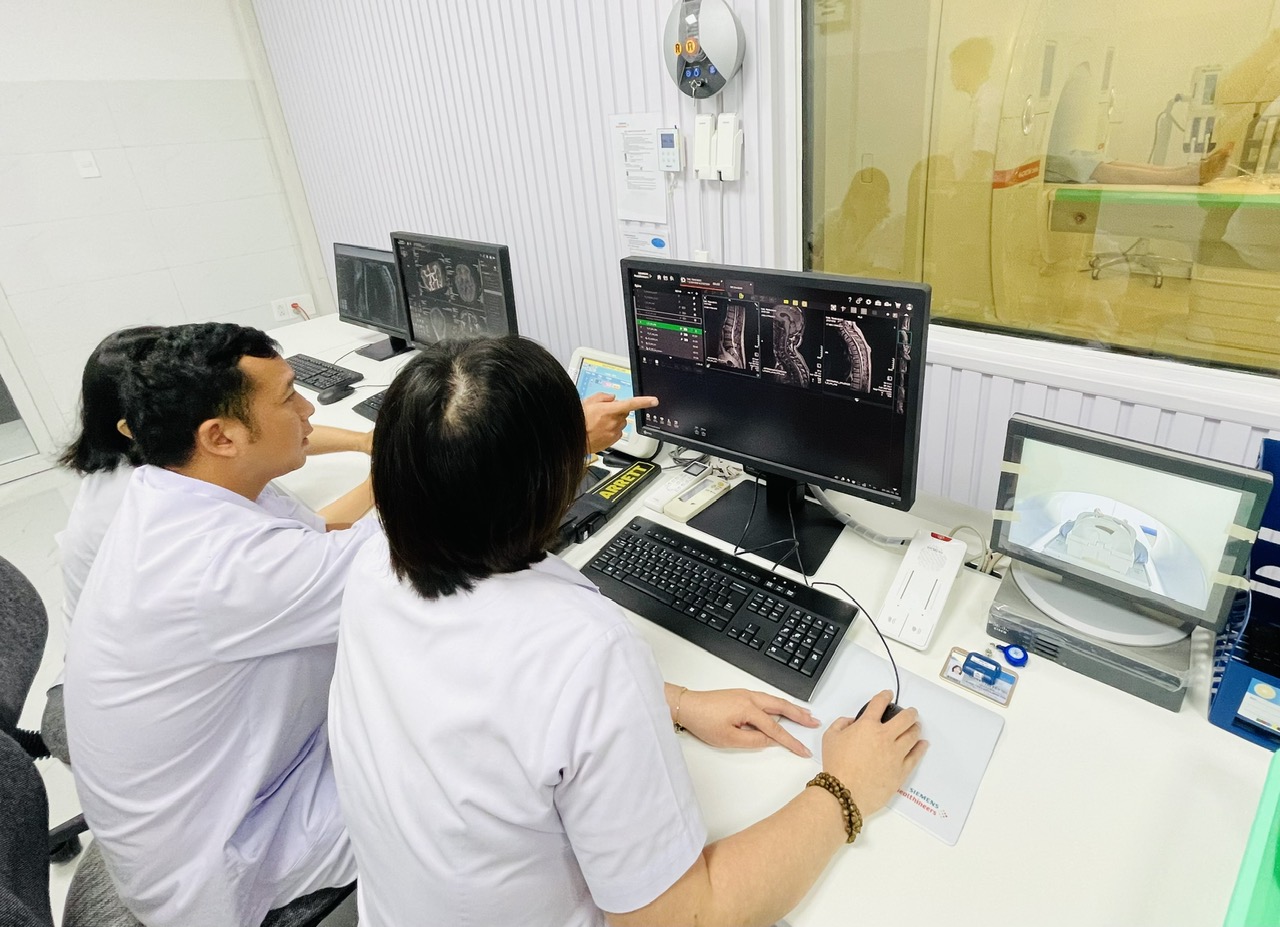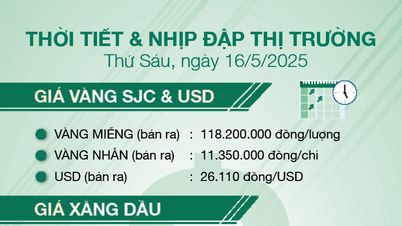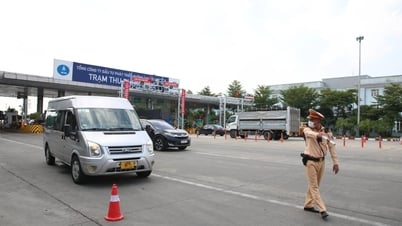Reduce many costs
According to Associate Professor, Dr. Dao Xuan Co, the transition to electronic medical records helps all information about the patient's health status, medical history and treatment process to be stored and managed online. This not only improves management efficiency but also facilitates doctors and medical staff to access information quickly, minimizing errors in the diagnosis and treatment process. Electronic medical records also contribute to improving transparency and efficiency in managing health insurance medical examination and treatment costs, minimizing administrative procedures and shortening the time to process records.

All medical records are digitized and shared.
PHOTO: DUY TINH
Bach Mai Hospital is planning to deploy data connectivity with provincial hospitals to further facilitate doctors and patients.
Bach Mai Hospital's leaders analyzed: "With data connectivity, patients can be transferred conveniently, especially with difficult cases. During treatment in the province, central doctors and provincial doctors can monitor the disease progression together, thereby easily discussing and coming up with the best treatment method. And when transferring, patients do not have to bring their medical records."
In particular, the leader of a leading hospital estimated that implementing electronic medical records not only helps save hundreds of billions of VND/year at the hospital, eliminating the need to print diagnostic imaging results, but also protects the environment because there is no longer a large amount of film waste after patients no longer use it.
Barriers
According to analysis by a representative of the Vietnam Medical Informatics Association, there are main reasons that are barriers preventing hospitals from speeding up the implementation of electronic medical records, including price setting, operating costs, and lack of readiness for implementation.
According to experts, the Ministry of Health has not yet developed a pricing structure for information technology (IT) in the price of medical examination and treatment services. Therefore, the investment and maintenance costs to ensure the sustainability of the system are really difficult. Hospitals can save costs to build software but it is difficult to have regular operating costs. The Ministry of Health has not yet developed regulations for Vietnam Social Security to pay insurance costs for IT solutions.
The expert gave an example: The use of the test image management system (X-ray, CT scan...) has not yet been regulated by the Ministry of Health to replace old films and the replacement price. Only 10 hospitals in the previous decision to pilot the implementation of electronic medical records of the Ministry of Health were paid for storing the results equivalent to the cost of printing the film. The remaining 130 hospitals, although having a digital image storage system, still have to print the film to be paid by insurance. The reason is that the Ministry of Health has not yet established a price frame for image storage.
A representative of the Vietnam Medical Informatics Association also said: "The guidelines on bidding for IT service leasing, including both software and hardware, do not have specific instructions. This makes hospitals confused because they do not have enough money, and they do have money but do not know how to spend it properly, leading to hesitation in doing or not daring to do it for fear of making mistakes."
This expert also believes that the slow implementation is also due to human factors, because some hospital leaders are not really interested in digital transformation, and old habits still exist. Or it could be that if electronic medical records are deployed, everything must be transparent, especially when there are "problems" with non-standard operations, electronic medical records cannot be corrected because of electronic traces of corrections. As 142 hospitals have successfully deployed, including Bach Mai, a unit with a huge amount of data that needs to be updated every day, it shows that if hospital leaders really want to deploy, there will be a solution.
"In addition, practitioners, specifically doctors, may also be hesitant about innovation. For many years, doctors have only been interested in treating patients with knowledge and experience, not in digital transformation and the values that digital transformation brings," the expert further analyzed the barriers to implementing electronic medical records. Because even for simple tasks like using paper medical records in the past, the person updating information was mainly the nurse, the doctor had very little participation in this process and assigned work. With electronic medical records, doctors have to work with the software more than the person in charge of messages in the medical records (in accordance with the law), so they are more hesitant," the expert commented.
Hospitals can absolutely do it.
Minister of Health Dao Hong Lan affirmed: IT and digital transformation have made a very important contribution, creating huge changes in social activities in general, and in the health sector in particular. IT has made profound and fundamental changes, becoming an indispensable means and tool in the activities of the health sector.
Regarding the implementation of electronic medical records at Bach Mai Hospital, Minister Dao Hong Lan assessed that if the largest general hospital in the country successfully implemented electronic medical records, other facilities under the Ministry of Health or localities can completely do the same. Hospitals need to promote digital transformation, IT application, focusing on solutions to facilitate and support people when registering and during the medical examination and treatment process. In particular, patients and people are the center, the target of service in digital transformation and IT application. Hospitals also need to continue to promote cashless payments, use of chip-embedded CCCD cards, electronic referrals, electronic re-examination appointments on the VNeID application...
Source: https://thanhnien.vn/tang-toc-benh-an-dien-tu-loi-ich-lon-nhung-con-nhieu-rao-can-185250322221814516.htm



![[Photo] Prime Ministers of Vietnam and Thailand visit the Exhibition of traditional handicraft products](https://vphoto.vietnam.vn/thumb/1200x675/vietnam/resource/IMAGE/2025/5/15/6cfcd1c23b3e4a238b7fcf93c91a65dd)


![[Photo] National Assembly Chairman Tran Thanh Man meets with Thai Prime Minister Paetongtarn Shinawatra](https://vphoto.vietnam.vn/thumb/1200x675/vietnam/resource/IMAGE/2025/5/15/e71160b1572a457395f2816d84a18b45)




















































































Comment (0)